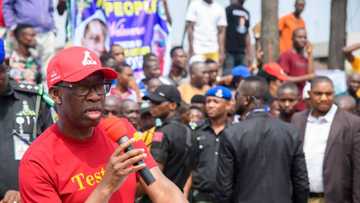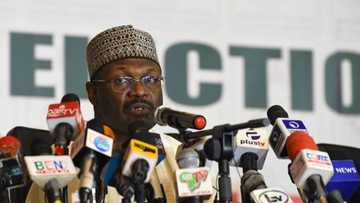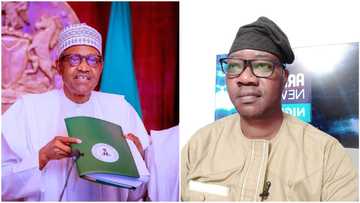How Electoral Act 2022 Impacts Political Parties, Contestants (1) by Jide Ojo
Editor's Note: In this opinion piece, Jide Ojo, a veteran political analyst and newspaper columnist, writes about the 2022 Electoral Amendment Bill recently signed into law by President Muhammadu Buhari and its far-reaching impacts.
When President Muhammadu Buhari described the Electoral Act 2022 as a revolutionary piece of legislation, he was not making a flippant statement.
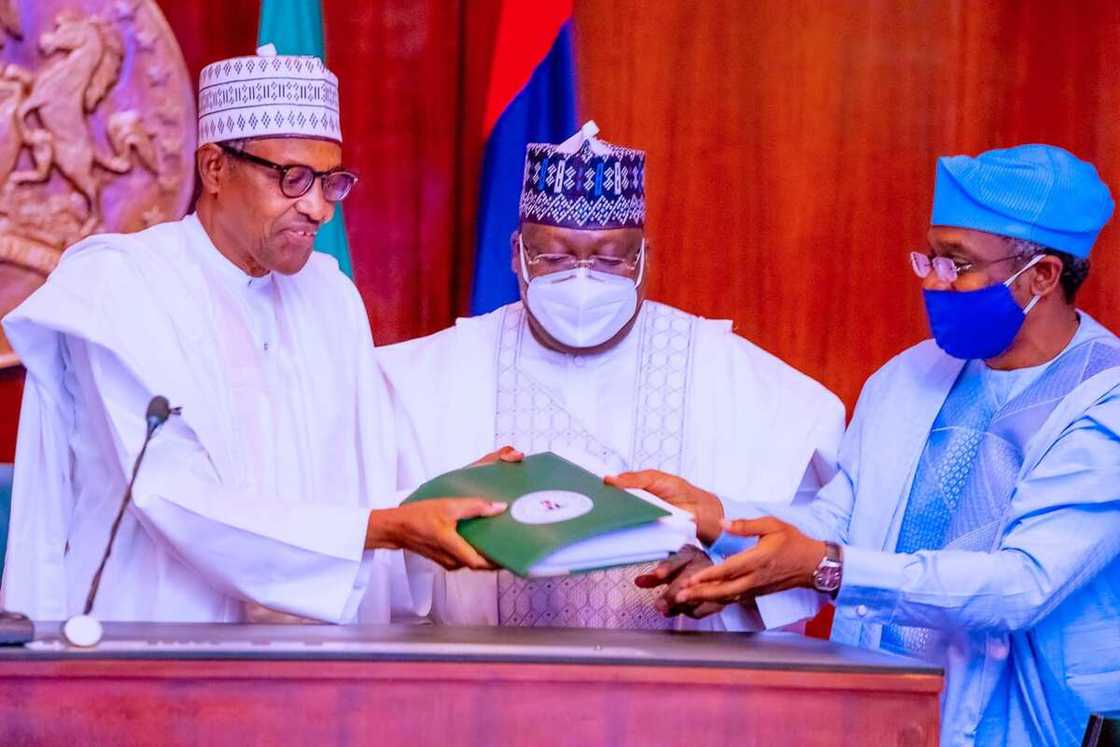
Source: Facebook
Having been able to get a signed copy of the bill and read through it, I cannot help but agree with the president. Unknown to many Nigerians, the Act contains a wide range of reforms that, if truly and genuinely implemented, will enhance credible future elections and deepen our democracy.
There are nine stakeholders in the electoral process whose fidelity to the election project must be sound and faultless. They are the electoral management bodies (in Nigeria we have 37 of them viz. Independent National Electoral Commission and 36 State Independent Electoral Commissions), political parties, contestants (that is, aspirants and candidates), security agencies and the media. Others are accredited observers, the judiciary, the legislature and the electorate.
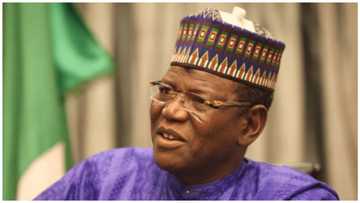
Read also
Electoral Act: National Assembly members should bury their heads in shame over section 84(12), Lamido fumes
It is surprising that there is a lot of ignorance on Nigeria’s electoral process even from the unexpected quarters, that is, among political parties, aspirants and candidates. I recall that after the signing into law of the Not Too Young To Run bill in 2018, many of the 91 registered political parties as of then still went ahead to field unqualified candidates for governorship positions. Though the new constitutional provisions did not change the age qualification of governorship candidates from the 35 that it is, some political parties presented candidates who are younger than that age. That was why INEC decided not to process the nomination of such political parties and, therefore, left them out of the ballot papers.
PAY ATTENTION: Join Legit.ng Telegram channel! Never miss important updates!
It is commendable that 19 days after the Act was signed by the president, a German foundation, Konrad-Adenauer-Stiftung, decided to build the capacity of Nigerian journalists on the Electoral Act 2022. The training, which holds today and tomorrow in Abuja, has eminent Nigerians as resource persons, myself included. I hope other international and national non-governmental organisations will follow KAS to educate different electoral stakeholders on their roles and functions as enunciated in the new electoral law.
What should political parties and contestants know about the Electoral Act 2022? First let’s begin from the grundnorm, the Nigerian Constitution. It is noteworthy that the 1999 Constitution of the Federal Republic of Nigeria dedicated a whole chapter to political parties. This is from Sections 221 – 229. Indeed, section 229 defines a political party as any association whose activities include canvassing for votes in support of a candidate for election to the office of president, vice president, governor, deputy governor or membership of a legislative house or a local government council.
Part V of the EA 2022 is wholly dedicated to political parties as well. Here are some highlights of what has changed in the new law. Section 75(1) says the application to register as a political party is to be submitted to INEC no later than one year before the general elections. It used to be six months in the 2010 EA. S. 75(3) of the Act says non-registration of any political association is to be communicated within 90 days. It used to be 30 days. Section 75(4) of the Act says any political association that seeks to register as a political party shall upon meeting the provision stipulated in the constitution and EA be registered within 60 days. It used to be 30 days in the EA 2010.
75(5) of the Act says any association that gives false or misleading information to INEC is to be fined N5m. Any executive or principal officer of the association who gives false or misleading information is to be fined N3m or two years’ imprisonment or both. Section 78(7)(a) of EA 2010 which deals with the deregistration of political parties has been deleted in the new law. S. 76 of the 2022 EA says non-registration of any political association as a political party can only be challenged at a Federal High Court and within 14 days of receiving information of non-registration from INEC. It used to be 30 days.
77(2) of the Act says “Every registered political party shall maintain a register of its members in both hard and soft copy.” Subsection (3) says “Each political party shall make such a register available to the Commission not later than 30 days before the date fixed for the party primaries, congresses or convention.” These are entirely new provisions that were not there in the previous EA. Thus, the lack of membership register by a political party is no longer tenable. In fact, the Act has now challenged political parties in Nigeria to do biometric registration of their members since they have to submit hard and soft copies to INEC.
78. (1) says any political party or association, which contravenes the provisions of section 227 of the constitution (Prohibition of quasi-military organisation), commits an offence and is liable on conviction to a fine of – (a) N5,000,000 for the first offence; (This was previously N500,000) (b) N7,000,000 for any subsequent offence (Previously N700,000); (c) N500,000 for every day that the offence continues. (Previously N50,000). Subsection (2) says any person or group of persons who aids or abets a political party in contravening the provisions of section 227 of the constitution commits an offence and is liable on conviction to a fine of N5,000,000 (Previously N500,000) or imprisonment for a term of five years (three years before now) or both.
S.82 in EA 2010 which is now S. 79 in the EA 2022 has a new subsection 6 which says “Where a political party is deregistered, no political association shall be permitted to use the name, symbol, logo or acronym of the deregistered political party within five years of deregistration. S.81(2) of EA 2022 says, “Political parties intending to merge shall each give to the Commission nine months’ notice of their intention to do so before a general election.” This used to be 90 days in S.84(2) of EA 2010.
82 (1) of the new law says, “Every registered political party shall give the Commission at least 21 days’ notice of any convention, congress, conference or meeting convened for the purpose of “merger” and electing members of its executive committees, other governing bodies or nominating candidates for any of the elective offices specified under this Act.” Merger was not mentioned in the EA. 2010. This section is what INEC is trying to enforce in its recent letter to the ruling APC on the change of leadership of CECPC. Subsection (5) says “Failure of a political party to notify the Commission as stated in subsection (1) shall render the convention, congress, conference or meeting invalid.” This is a new provision.
–To be continued…
Tweet at Jide Ojo @jideojong
Disclaimer: The views and opinions expressed here are those of the author and do not necessarily reflect the official policy or position of Legit.ng.
Source: Legit.ng


